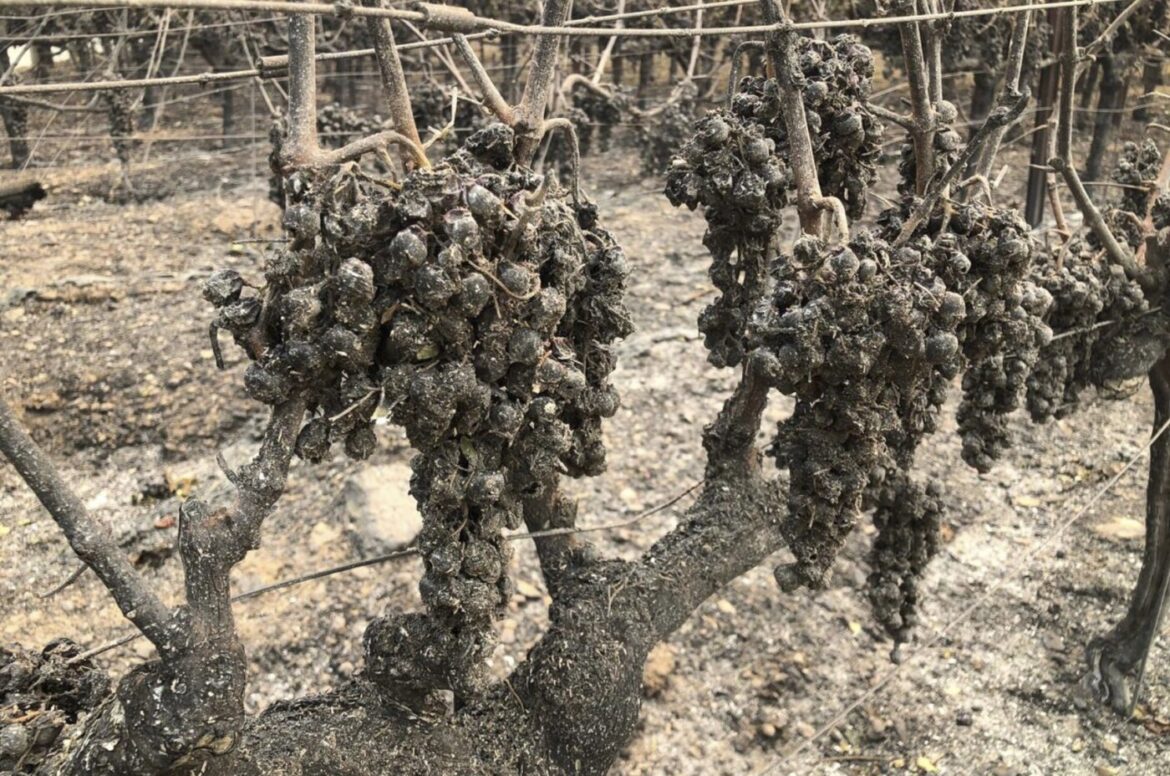Thousands evacuating, three dead
The worst fire season in California’s recorded history keeps getting worse.
Following a weekend of high temperatures and dry winds that blasted through parts of Northern California at more than 50 miles per hour, record-breaking blazes intensified and new fires ignited — including the Glass Fire in Sonoma and Napa counties and the Zogg Fire in Shasta County. Both 0% contained, the new fires ripped through wineries and homes, forcing more than 68,000 evacuations and prompting Gov. Gavin Newsom to declare a state of emergency Monday night. At least three people have lost their lives in the Zogg Fire. Meanwhile, 87,500 PG&E customers lost power through at least Monday night.
For Wine Country residents, the conflagrations and evacuations reprise the nightmarish 2017 Tubbs and Nuns fires that destroyed thousands of homes and killed dozens of people. Apart from the Glass Fire, the region is still contending with the LNU Lightning Complex, the fourth-largest wildfire in California history. And the fires could taint flavors in the region’s famed grapes, presenting yet another challenge for a wine industry struggling amid the pandemic.
- Sonoma County Supervisor Susan Gorin: “It seems surreal to me that we would be facing this again … It’s like God has no sympathy, no empathy for Sonoma County.”
- Sonoma County resident Randi Cornwall: “The Tubbs trauma is real. … We are all in some form of therapy. My 6-year-old needs me to hold her when she smells smoke.”
Although winds are expected to slow down across much of Northern California today, gusty Santa Ana winds are expected to pummel Southern California for most of the week amid a heat wave and low humidity, setting the stage for extreme fire danger. Unhealthy air is slated to blanket much of the state.
Statewide, more than 18,000 firefighters are battling 27 major wildfires, which have charred more than 3.7 million acres, killed 26 and destroyed more than 7,000 structures, state fire officials said Monday.
- Newsom: “The dynamics of climate change, the dynamics as it relates to the lack of forest management over the last century, have created a dynamic of real concern as it relates to the spread of these wildfires in ferocious ways.”
Other stories you should know
1. Feds slam Newsom’s car ban

If there was any doubt about how the Trump administration would react to Newsom’s decision to ban new gas-powered cars in California starting in 2035, it was dispelled Monday with a scathing letter from the federal Environmental Protection Agency. Administrator Andrew Wheeler said Newsom’s ban is “mostly aspirational” and raises “significant questions of legality,” reminding the governor that it would need to be approved by the federal government in order to take effect. (Approval doesn’t seem likely.) He also slammed Newsom for the state’s first rolling blackouts in nearly two decades.
- Wheeler: “California’s record of rolling blackouts … coupled with recent requests to neighboring states for power begs the question of how you expect to run an electric car fleet that will come with significant increases in electricity demand, when you can’t even keep the lights on today.”
Newsom and California Air Resources Board Chair Mary Nichols said last week they believe the ban is legal.
- Nichols: “We believe the Clean Air Act gives us the authority to set exactly the kinds of standards that we have set since the late sixties.”
2. Newsom signs, vetoes bills

With now just two days left to sign or veto some of the most high-profile and controversial bills of the legislative session, Newsom showed his cards on a number of proposals Monday. Here’s a look at some of the key proposals he signed into law, as well as those he vetoed.
Signed into law:
- A bill that puts California on track to become the first state to produce its own line of generic drugs.
- A stack of housing bills, including one that aims to prevent corporations from snapping up foreclosed homes. However, California’s most ambitious housing legislation died before reaching Newsom’s desk.
- A bill that requires the state’s workplace health and safety agency to publicize findings from investigations into agricultural employers’ COVID-19 responses.
Vetoed:
- A bill that would have created a state Office to End Homelessness. “Homelessness must not be considered in a vacuum,” Newsom wrote in a veto message. “Separating policy development on homelessness from that on health care or housing will lead to more fragmentation, not less.”
- A bill that would have guaranteed every Californian the right to safe, decent and affordable housing. “To make progress, we need more than policy goals,” Newsom wrote in a veto message. “We need tangible funding strategies and legal requirements.”
3. Concerns over November election

As Republican President Donald Trump and Democratic presidential candidate Joe Biden gear up for their first debate tonight, 82% of California voters are worried that many Americans won’t respect the outcome of the election, according to a Monday poll from UC Berkeley’s Institute of Governmental Studies.
- IGS Co-director Eric Schickler: “It was not that long ago that voters in both parties had high confidence in the integrity of the election process. The loss of that confidence is a worrisome sign for democratic stability going forward.”
About 41% of California voters are also concerned about the U.S. Postal Service’s ability to deliver mail-in ballots on time, likely due to recent operational changes that led to postal delays and reduced mail capacity. But a federal judge on Monday issued a preliminary injunction to halt those changes following an August lawsuit from California Attorney General Xavier Becerra and other attorneys general.
- Becerra: “The court has spoken. It’s time for President Trump to follow the law and stop interfering with our mail. Our elections — and the health and livelihood of American families — depend on it.”
